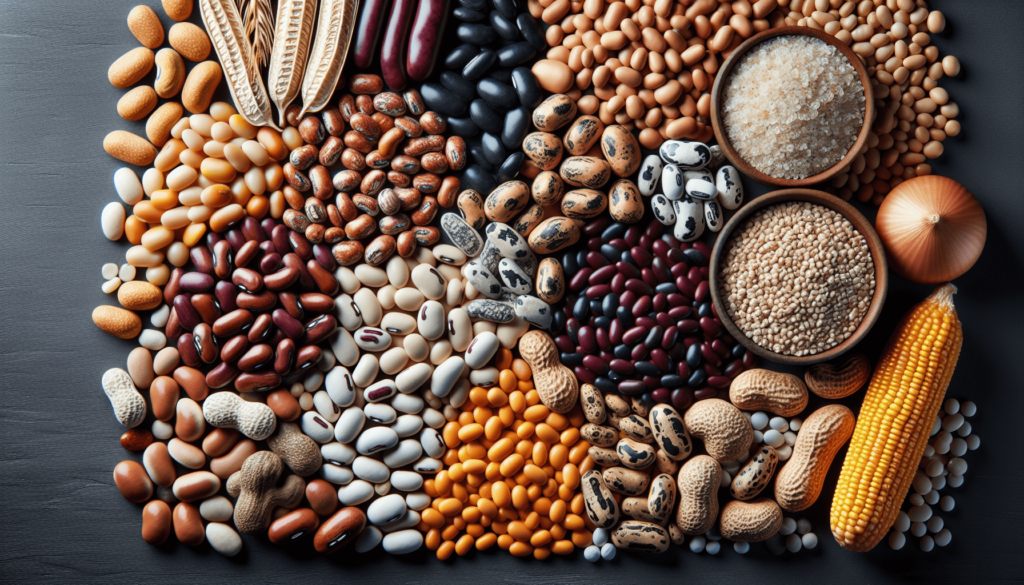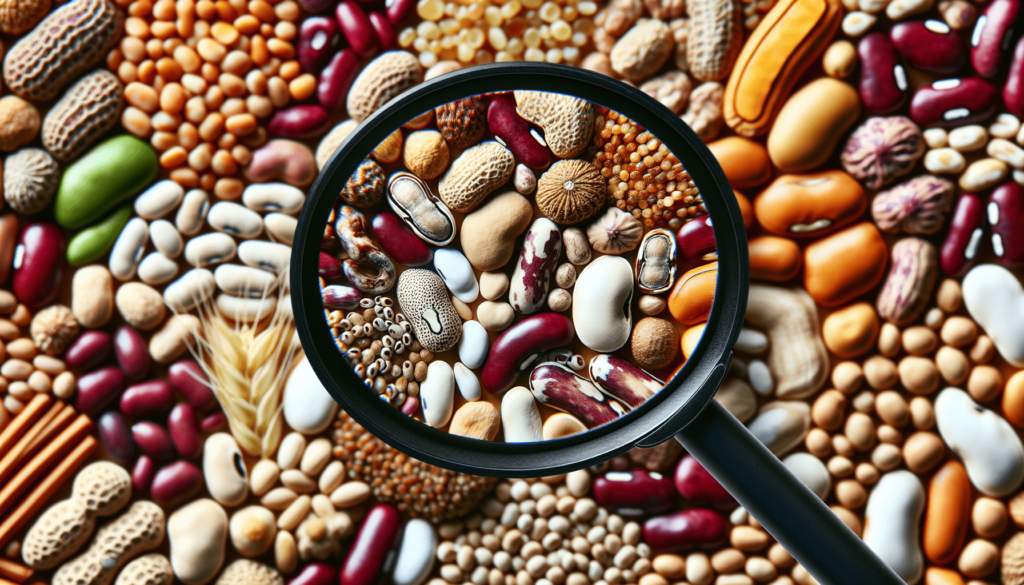Uncovering the Truth About Lectins: Are They Good or Bad?
Introduction
Lectins have become a widely discussed topic in the world of nutrition and health. There are mixed opinions about lectins, with some claiming they have numerous health benefits while others argue they can be harmful to the body. In this article, we will uncover the truth about lectins and determine whether they are good or bad for you.
What are Lectins?
Lectins are a type of protein that can bind to carbohydrates. They are naturally found in a variety of foods, including legumes, grains, fruits, and vegetables. Lectins play a role in the immune system and can act as a defense mechanism for plants against predators.
The Benefits of Lectins
While lectins have received a lot of negativity, it is important to acknowledge that they also have some potential health benefits. Lectins have been shown to have anti-inflammatory properties and may help protect against certain types of cancer. Additionally, lectins can help regulate blood sugar levels and promote gut health by aiding in digestion.
Anti-Inflammatory Properties
Some lectins have been found to have anti-inflammatory effects in the body. By reducing inflammation, lectins can help protect against chronic diseases such as heart disease, diabetes, and arthritis. Including lectin-rich foods in your diet may help lower inflammation and improve overall health.
Cancer Protection
Certain lectins have demonstrated anti-cancer properties in laboratory studies. These lectins may help prevent the growth and spread of cancer cells, making them a potential ally in cancer prevention. Incorporating lectins into your diet may offer some protection against certain types of cancer.
Blood Sugar Regulation
Lectins can also play a role in regulating blood sugar levels. By slowing down the absorption of carbohydrates, lectins can prevent spikes in blood sugar and insulin levels. This can be particularly beneficial for individuals with diabetes or those at risk of developing the disease.
Gut Health
The ability of lectins to bind to carbohydrates can aid in digestion and promote gut health. Lectins may help break down food more efficiently and improve nutrient absorption in the gut. A healthy gut is essential for overall well-being and can have a positive impact on immune function and mental health.

The Risks of Lectins
While lectins do offer some health benefits, they also come with potential risks that should be considered. Lectins can be difficult for some people to digest and may contribute to digestive issues such as bloating, gas, and diarrhea. Additionally, lectins can interfere with the absorption of certain nutrients and may lead to nutrient deficiencies if consumed in excess.
Digestive Issues
For some individuals, consuming foods high in lectins can lead to digestive discomfort. Lectins can bind to the lining of the gut and may cause irritation, resulting in symptoms such as bloating, gas, and diarrhea. If you experience digestive issues after consuming lectin-rich foods, it may be best to reduce your intake or avoid them altogether.
Nutrient Absorption
Lectins have the ability to bind to certain nutrients in the gut, preventing their absorption by the body. This can lead to nutrient deficiencies over time, especially if you rely heavily on lectin-containing foods in your diet. It is important to be mindful of your lectin consumption and ensure you are getting an adequate amount of nutrients from other sources.
Potential Toxicity
In some cases, lectins can be toxic to the body, especially when consumed in large quantities. Certain lectins have been found to interfere with the function of the digestive system and may cause damage to the intestines. It is important to be cautious with your lectin intake and avoid overconsumption of foods that are particularly high in lectins.
How to Reduce Lectin Content in Foods
If you are concerned about the potential risks associated with lectins, there are ways to reduce their content in foods. Cooking, soaking, fermenting, and sprouting are all methods that can help break down lectins and make them easier to digest. By implementing these techniques, you can still enjoy lectin-rich foods while minimizing the negative effects they may have on your body.
Cooking
Cooking food can help reduce the lectin content and make them more digestible. Boiling, steaming, or roasting foods high in lectins can break down the proteins and make them safer to consume. Be sure to thoroughly cook lectin-containing foods to minimize any potential digestive issues.
Soaking
Soaking legumes, grains, and nuts in water before cooking can help remove some of the lectins. This process can make the foods easier to digest and reduce the likelihood of experiencing digestive discomfort. Be sure to discard the soaking water and rinse the foods thoroughly before cooking.
Fermenting
Fermentation is another method that can help reduce the lectin content in foods. Fermented foods such as yogurt, kefir, and sauerkraut contain beneficial bacteria that can break down lectins and improve digestion. Including fermented foods in your diet can help balance out the potential negative effects of lectins.
Sprouting
Sprouting grains, seeds, and legumes can also help reduce the lectin content and make them easier to digest. Sprouting activates enzymes that break down lectins and other anti-nutrients, making the foods more nutrient-dense and less likely to cause digestive issues. Incorporating sprouted foods into your diet can be a healthy way to enjoy lectin-rich foods without the negative side effects.

Conclusion
In conclusion, the debate over whether lectins are good or bad for you is ongoing. While lectins do offer some potential health benefits, they also come with risks that should be taken into consideration. It is important to be mindful of your lectin consumption and take steps to reduce their negative effects, such as cooking, soaking, fermenting, and sprouting foods. By incorporating lectin-rich foods in moderation and implementing strategies to reduce lectin content, you can enjoy the potential health benefits of lectins without compromising your digestive health. Remember to listen to your body and make choices that align with your individual needs and preferences when it comes to including lectins in your diet. Stay informed, stay healthy, and make the best choices for your well-being.

